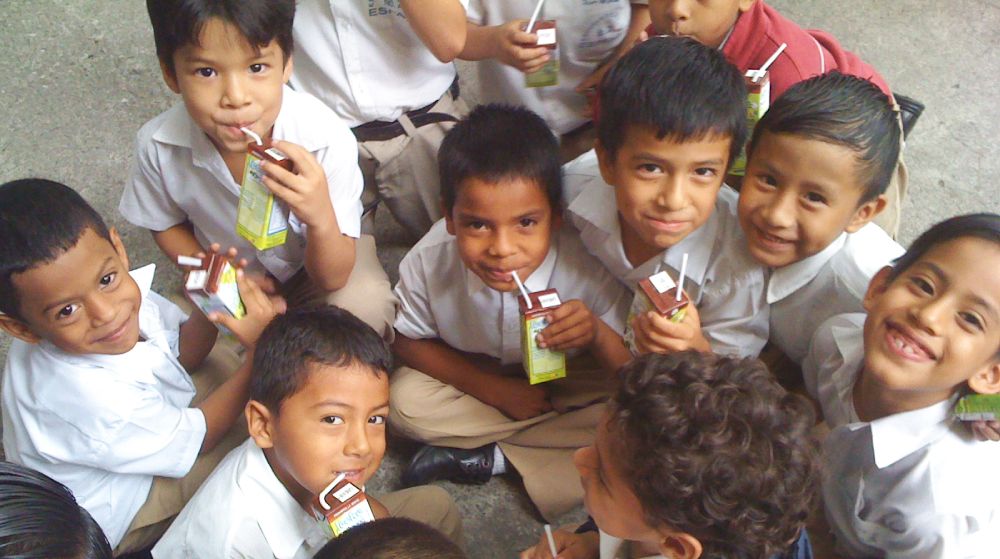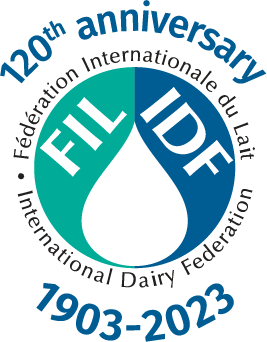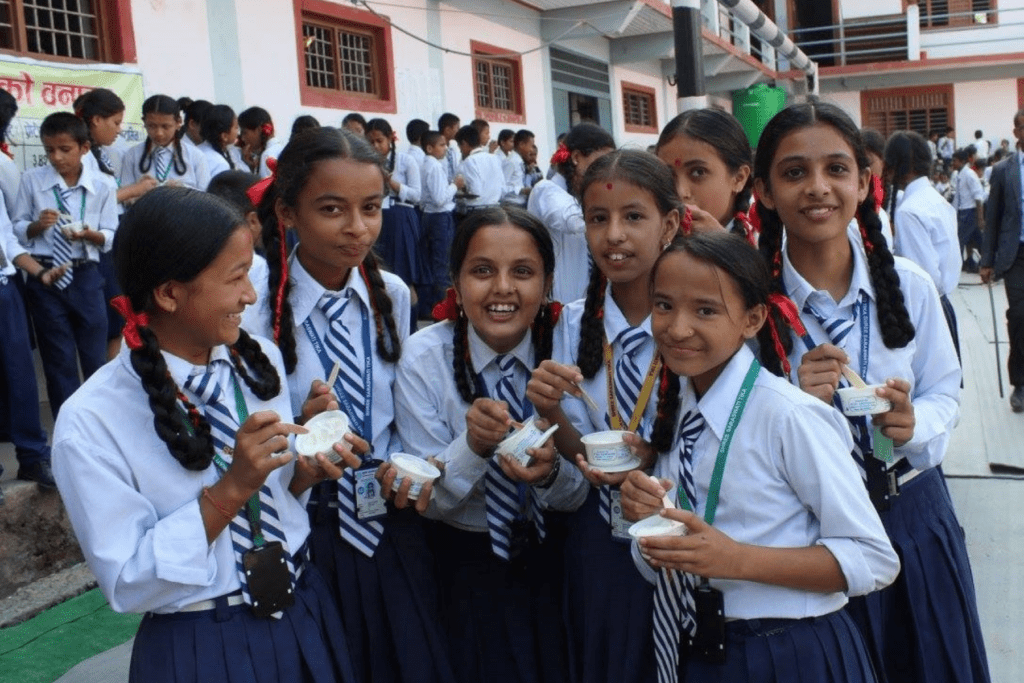Share this page
Overview of programs
A long history of contributing to the good health and nutrition of school children around the world

Helping children grow
Consuming nutritious food is important at all stages of life, but especially for children and adolescents. Not only is adequate nutrition needed to support growth and development, but it also properly fuels bodies and minds for learning. Since children spend a significant amount of time at school, milk programs, which are often included as part of larger school meal programs, give children access to the nutrients they need to grow and develop.
Research has demonstrated that the school environment can have a major impact on attitudes to food, with school milk programs helping to address nutritional status of a vulnerable population and encouraging healthy eating habits. Analysis shows that a quality education, combined with a guaranteed package of health and nutrition interventions at school, such as school feeding, can contribute to child and adolescent development.
Fuel for life

Packed with the nutrients a child’s body needs, milk & dairy give children power in their everyday life

Benefits for health & well-being
Experts agree that school meal programs have a positive effect on children’s nutritional and health outcomes. Consuming nutrient-dense foods like milk that are made readily available in school meal programs is also associated with improved academics and behavior.
Milk consumption has a strong association with building strong bones. Milk and dairy foods provide the right amount of bone-building nutrients, specifically calcium, vitamin D, protein, phosphorus, magnesium, potassium, vitamin B12 and zinc.
Beyond bone health, milk, with its unique package of nutrients, is also the leading food source of three of these four nutrients of public health concern in the diets of children: calcium, vitamin D, and potassium.
A unique package of nutrients
Milk offers health attributes that are different from plant-based and other animal source foods, which can be very difficult to replace in a healthy dietary pattern for most people.
Milk’s unique package of nutrients work together to provide multiple health benefits, including optimal growth and development in children and reduced risk of chronic diseases such as type 2 diabetes and heart disease. By encouraging milk consumption in schools, nutrient gaps that exist in the diets of children may be bridged.
Important dates for your diary
World School Milk Day is held all over the world on the last Wednesday of September every year to celebrate the benefits and success of school milk programs. The first World School Milk Day was celebrated in September 2000 and has since become an annual event promoted by the FAO (Food and Agricultural Organization of the United Nations).
The provision of milk to school children has helped combat undernutrition in times of scarcity. World School Milk Day is celebrated in many countries, with an increasing number of activities taking place each year. Schools and milk providers are free to celebrate as they wish. Celebrations can be at any level – from national or regional events to individual schools.
International School Meals Day (ISMD) is a unique campaign with the aim of raising awareness of good nutrition for all children regardless of their circumstances. Since December 2010, the UK and USA have been sharing examples of policy and practices in promoting healthy eating in schools. With similar challenges and successes on both sides of the Atlantic, both wanted to find a way to raise awareness of the importance of good nutrition amongst children and foster healthy eating habits both at home and at school – and so, International School Meals Day emerged. Since its launch in 2013, it has brought together teachers and students, policy makers, school cooks, chefs, food and nutrition professionals, schools and communities, charities, businesses, and health professionals from around the world to talk about the importance of school meals and its impact on wellbeing and education.
.
On 1 June every year, World Milk Day celebrates dairy’s vital role in global food systems, providing economic, nutritional, and social benefits to a large proportion of the world’s population. IDF and its members work together to convey this message to the public by promoting activities taking place on and around this day.
World Milk Day was initiated in 2001 by the Food and Agriculture Organisation of the United Nations to recognize the importance of milk as a global food, and to celebrate the dairy sector. Each year since, the benefits of milk and dairy products have been actively promoted around the world, including how dairy supports the livelihoods of one billion people.

Highly palatable & nutrient dense, milk—along with other dairy foods—play an important role in the diets of children
Learn more about school milk
Find out more about school milk programs around the world.
School Milk Knowledge Hub
Contributing to the good health and nutrition of school children around the world
Read MoreSchool milk resources
Find help with promoting, supporting and implementing school milk programs in your region.
Read MoreNutrition & Health
Scientific evidence supports the importance of milk and dairy products as part of healthy diets
Read MoreReports and Documents
Related news & insights
Fuel for life – the vital role of school feeding worldwide
IDF Director General Caroline Emond shares her views on the importance of global school meal programs, incorporating nutrient-dense foods like milk....
School Milk Programmes – vital for good health and learning
School milk programmes around the world contribute to good health and nutrition for children in schools. As....
How international superstars are inspiring younger generations to drink more milk
BTS are a very successful Korean boy band, known for their hit singles in the popular genre of Korean pop (K-POP). The group are....
School Milk Programs fuel students, support healthy bodies and minds around the world
Food insecurity exists in the United States, as well as in many developed and developing countries around the world. The National School Lunch....














